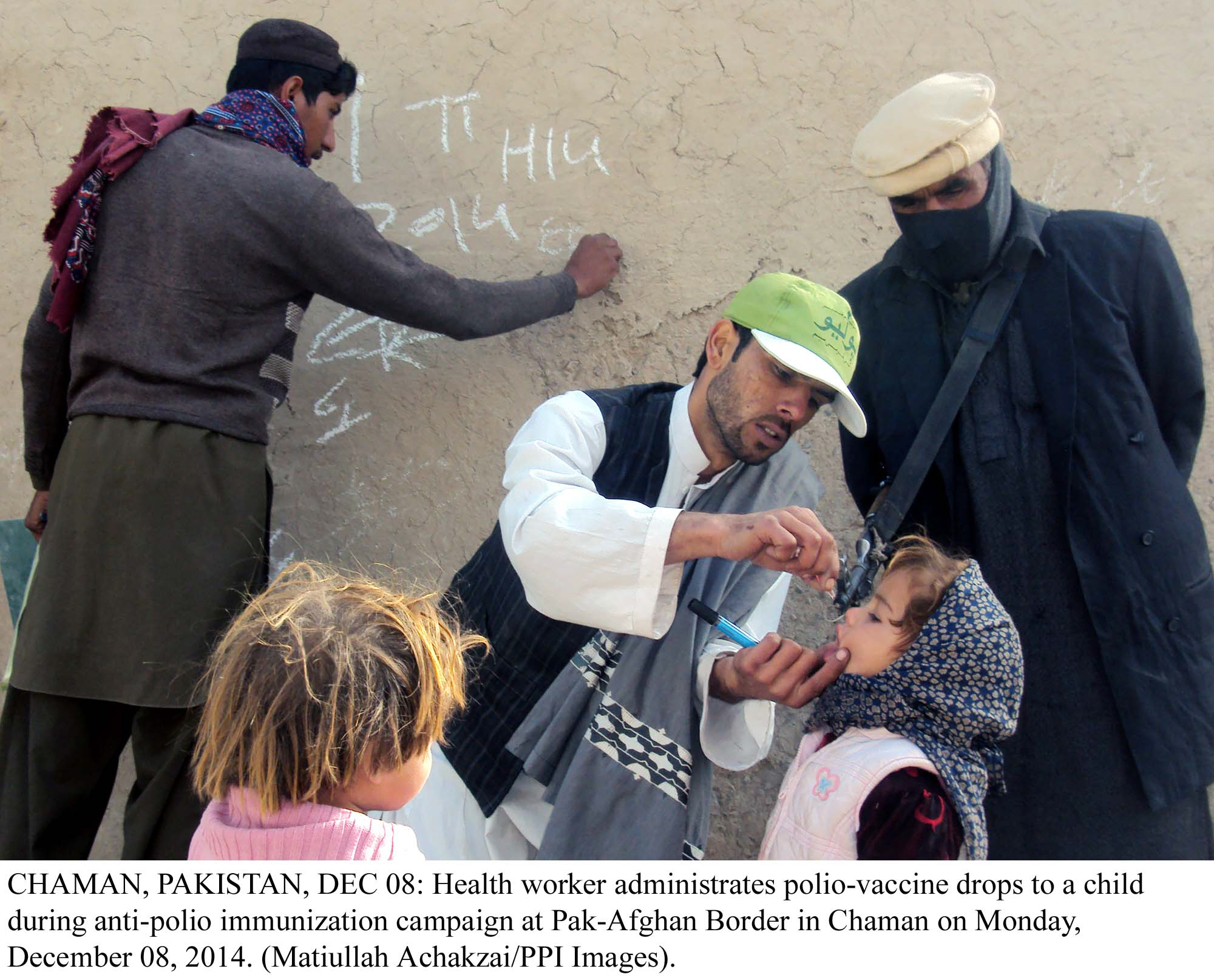
At least 867 cases of acute flaccid paralysis (AFP) were reported from Khyber-Pakhtunkhwa between January and October, stool samples of which were sent to the National Institute of Health in Islamabad. This was stated in a Vaccine Preventable Disease (VPD) surveillance report, a copy of which is available with The Express Tribune.
AFP is a clinical syndrome which has several infectious and non-infectious causes, including polio, Guillain-Barre syndrome and transverse myelitis. It is often viewed as a standard to detect cases of poliomyelitis. However, clinically detecting AFP is not the final diagnostic criteria for polio and laboratory testing follows the detection of AFP in an individual.

According to the report, the cases were processed by the NIH. According to media reports, 48 samples were confirmed to contain the poliovirus by early November. By the time November started, Pakistan had 231 cases.
Regional snapshot
The report suggests AFP cases were from 24 districts across the province. Nearly 370 samples were from Peshawar, 92 from Mardan, 79 cases from Abbottabad, 47 from DI Khan, 39 from Kohat and 37 from Charsadda and 26 each from Buner and Nowshera.
The report also revealed 19 AFP cases were reported from Swat and Lower Dir, 17 from Mansehra, 14 from Haripur and 13 each from Tank and Swabi. Nine samples of AFP came from Karak, eight each from Malakand, Chitral and Shangla, seven from Bannu, six from Lakki Marwat, five from Hangu, two from Battagram and Upper Dir. Only one AFP case was reported from Kohistan district.
Cause and effect
According to health experts, surveillance teams collect stool samples of children who are suspected to be affected by poliovirus. Once sample collectors hear of any suspected patients across the country, they collect stool samples and send them to the NIH for verification. NIH has also received cases reported in Afghanistan for confirmation.

“This does not mean all cases sent for verification are polio cases,” said the health expert. “Some of them could have been caused due to Neuritis, a medical condition characterised by inflammation of a nerve or a part of the nervous system.”
The expert also voiced concern over the large number of cases reported from Peshawar.
“Over time, people from different areas have migrated to the provincial capital,” he told The Express Tribune. “Even if the child belongs to another part of the province or the tribal areas, once a case is reported in Peshawar, it becomes a part of its statistics.”
With seven more polio cases reported from K-P and the Federally Administered Tribal Areas (Fata) on Saturday, this year’s total has reached 283, leaving Pakistan only 17 cases shy of 300.
Four of the children who were affected by the crippling disease belong to the tribal areas while the other three are from K-P. Two of them belong to Peshawar while the third is from Swat. The latter case is the second from a district which remained polio-free for five years.
Published in The Express Tribune, December 15th, 2014.












COMMENTS
Comments are moderated and generally will be posted if they are on-topic and not abusive.
For more information, please see our Comments FAQ